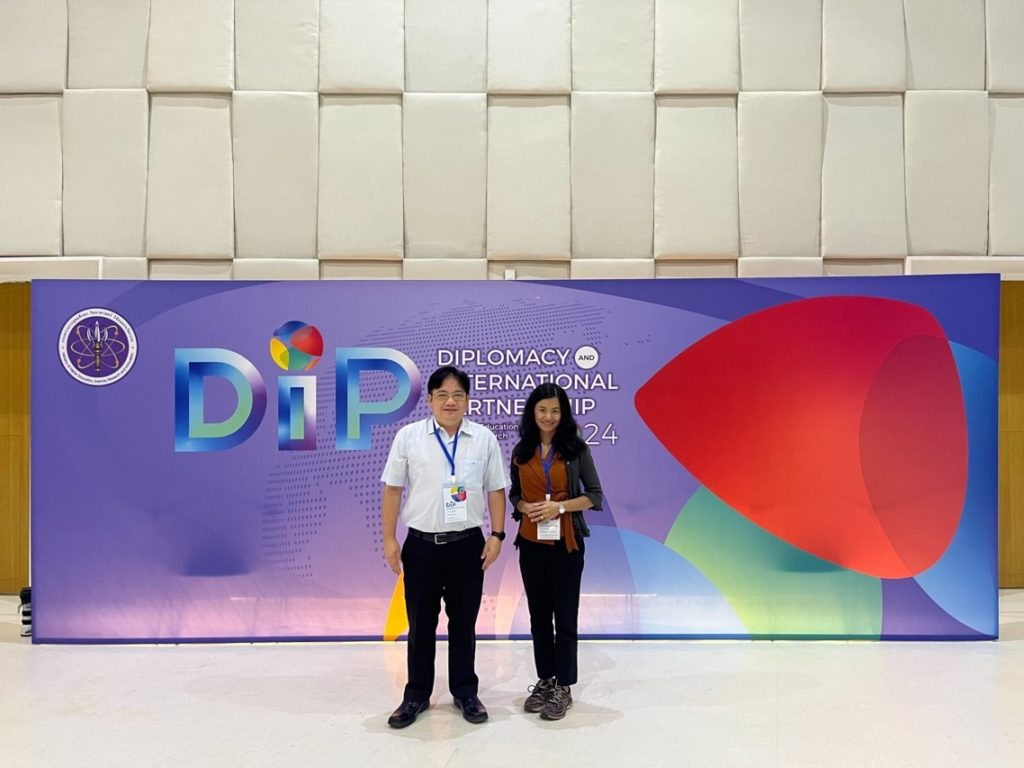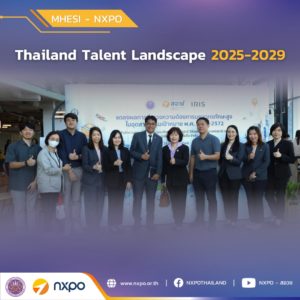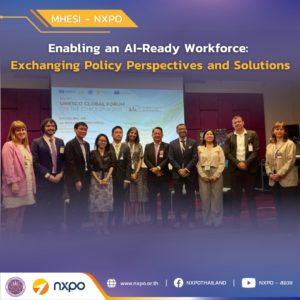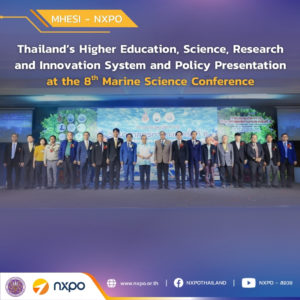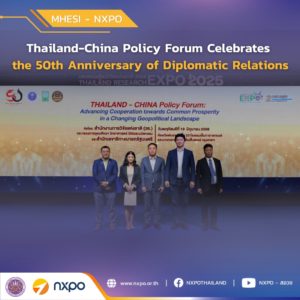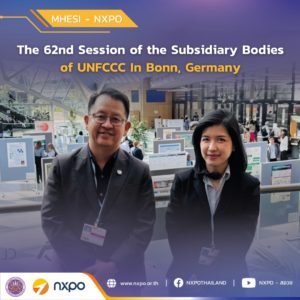NXPO President Dr. Kitipong Promwong recently delivered a presentation titled “Science and Technology for a Sustainable Future” at the “Diplomacy and International Partnership on Higher Education, Science, Research and Innovation 2024” event hosted by the Office of the Permanent Secretary of the Ministry of Higher Education, Science, Research and Innovation (MHESI). Held on 21 March 2024 at the Thailand Science Park in Pathum Thani, the event served as a platform for MHESI to share its international policy with foreign embassies in Thailand.
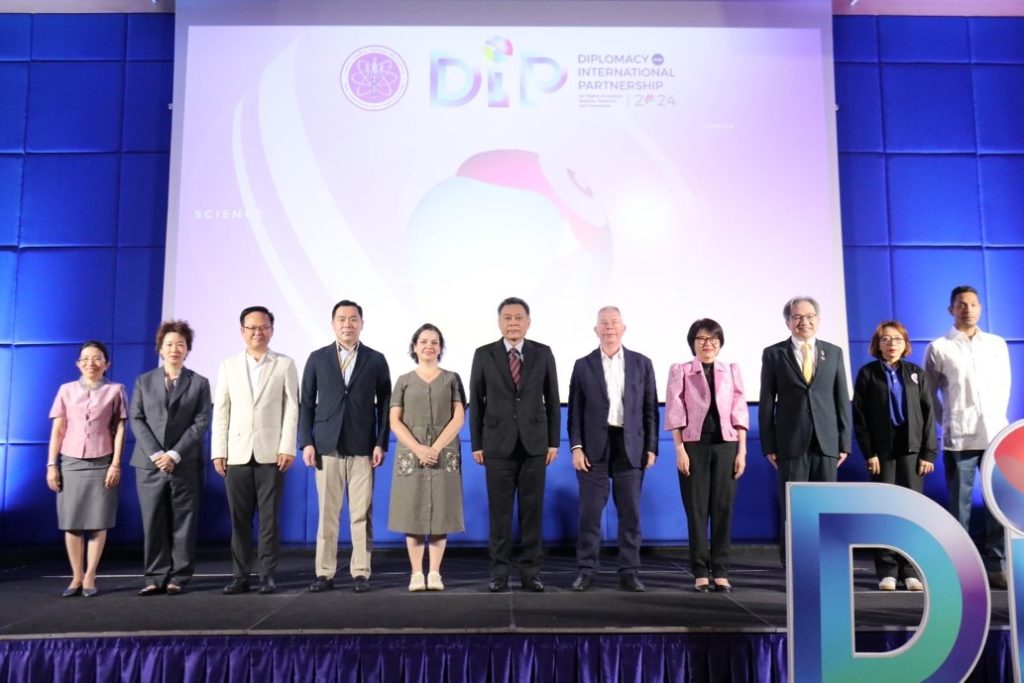
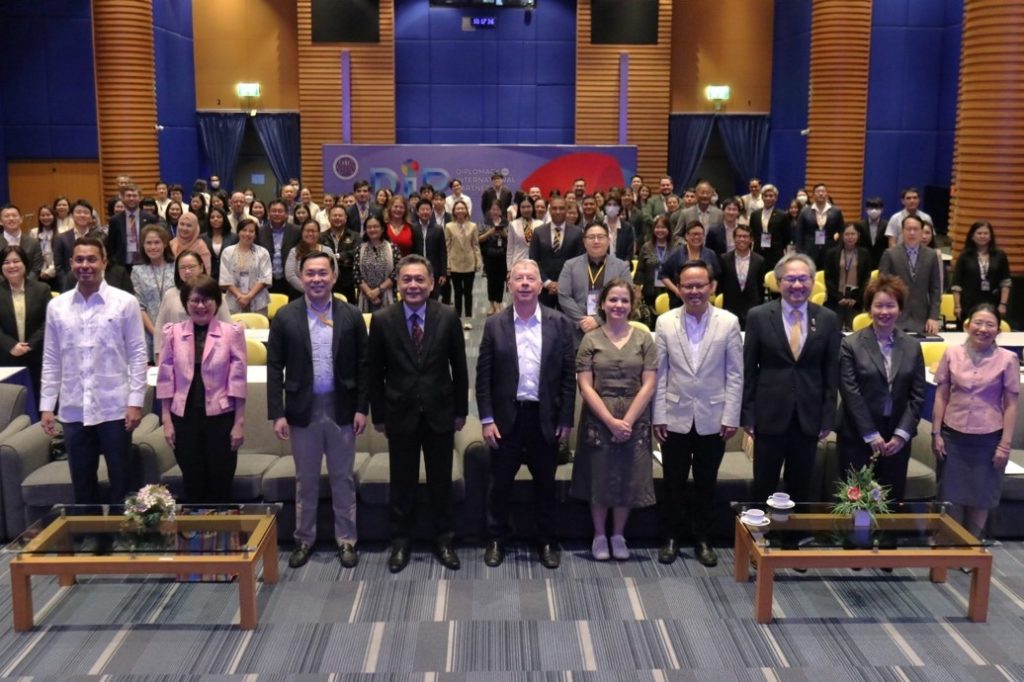
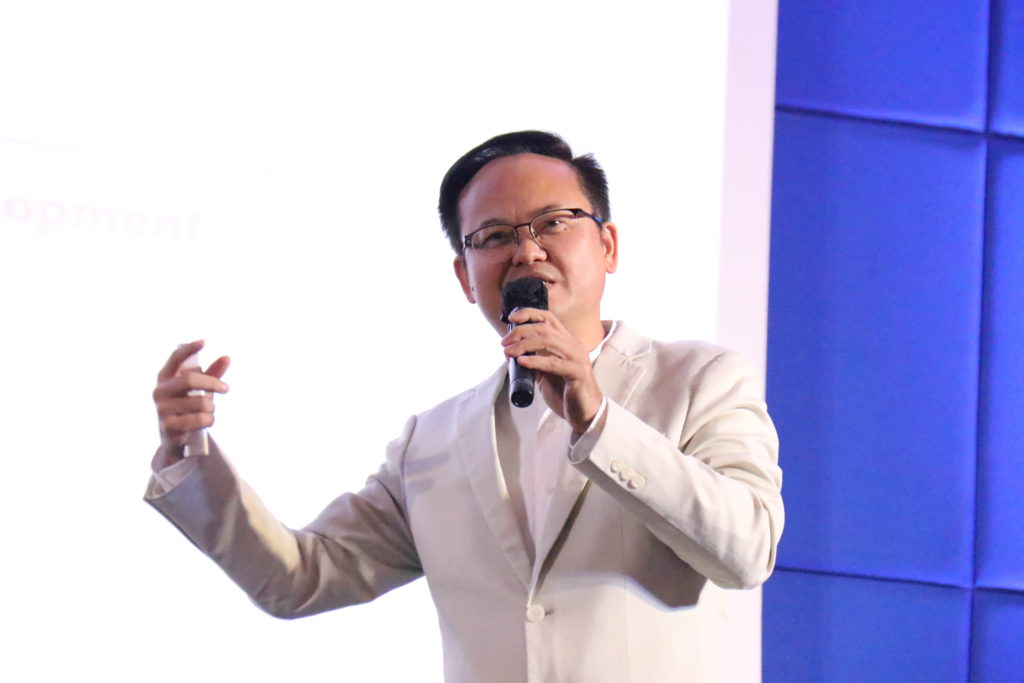
In his presentation, Dr. Kitipong identified four main challenges currently facing Thailand, namely the middle-income trap, social inequality, technological advancement, and climate change. These challenges prompted MHESI to focus on four strategic areas utilizing higher education, science, research, and innovation to: 1) elevate Thailand to a high-income country by establishing the BCG economy, future industries, and creative economy, as well as promoting innovation-driven enterprises (IDEs), 2) achieve GHG net zero emissions through initiatives such as the Saraburi Sandbox (a public-private partnership aimed at transforming cement-based Saraburi into a low-carbon city) and the Green Innovation (a program aimed at turning universities into green and net zero campuses through innovation), 3) facilitate social mobility and poverty eradication, and 4) reinvent higher education to develop skilled workforces for future industries.

To bring Thailand to a high-income status, Dr. Kitipong emphasized the importance of investment in high-value industries based on technology, innovation, cultural heritage, and creative content. Targets include increasing the nation’s R&D investment to 2% of GDP by 2027, developing 1,000 new IDEs with an average revenue of THB 1 billion, and nurturing 5 Thai unicorn startups. A dynamic ecosystem has been established to foster the growth of Thai enterprises, complete with support policies, funding, benefits, manpower development programs, S&T infrastructure, product development, and business facilitation and intermediaries. NXPO has played a key role in introducing the Thailand Research and Innovation Utilization Promotion Act 2021, promoting the role of regional science parks in incubating and strengthening local enterprises, and utilizing the university holding company mechanism to boost university-industry joint investment and research commercialization.

In pursuit of carbon neutrality and net-zero targets, science, technology and innovation (STI) have been employed to support the country’s roadmap. An initiative has been launched to transform Saraburi province into a net-zero city, involving the transition to clean energy, the implementation of green industrial processing, the adoption of low-carbon agriculture, and the improvement of waste management. Saraburi will serve as a model for other provinces to plan their net zero strategies. To address social mobility and poverty eradication, a target has been set to facilitate upward social mobility for 1 million individuals by 2027 through education access, the social enterprise incubator platform, grassroots economy development, and technology provision for career advancement.
The transformation of higher education and workforce development is driven by the shift from a three-stage life to a multi-stage life. To ensure Thailand has skilled workforces for future industries, NXPO introduced the Higher Education Sandbox, allowing universities to work with the industry to co-create new courses without confining to the current regulations. For example, the Bachelor of Engineering Program in Computer Engineering and Digital Technology at Chulalongkorn University offers certification modules, enabling students to secure employment upon obtaining certification without committing to a conventional 4-year degree program. Students can accumulate credits earned and return for degree completion when ready.

During the event, a tour was organized for participants to visit five research centers of the National Science and Technology Development Agency (NSTDA): NECTEC, BIOTEC, MTEC, NANOTEC, and ENTEC, as well as Lamtakong Research Station, Thailand Institute of Scientific and Technological Research (TISTR), Synchrotron Light Research Institute (Public Organization), and Lower Northeastern Science Park in Nakhon Ratchasima. NXPO representatives joining the tour included Dr. Pranpreya Sriwannawit Lundberg, Director of International Policy Partnership Division, and Mr. Parinand Varnasavang, Policy Specialist.
